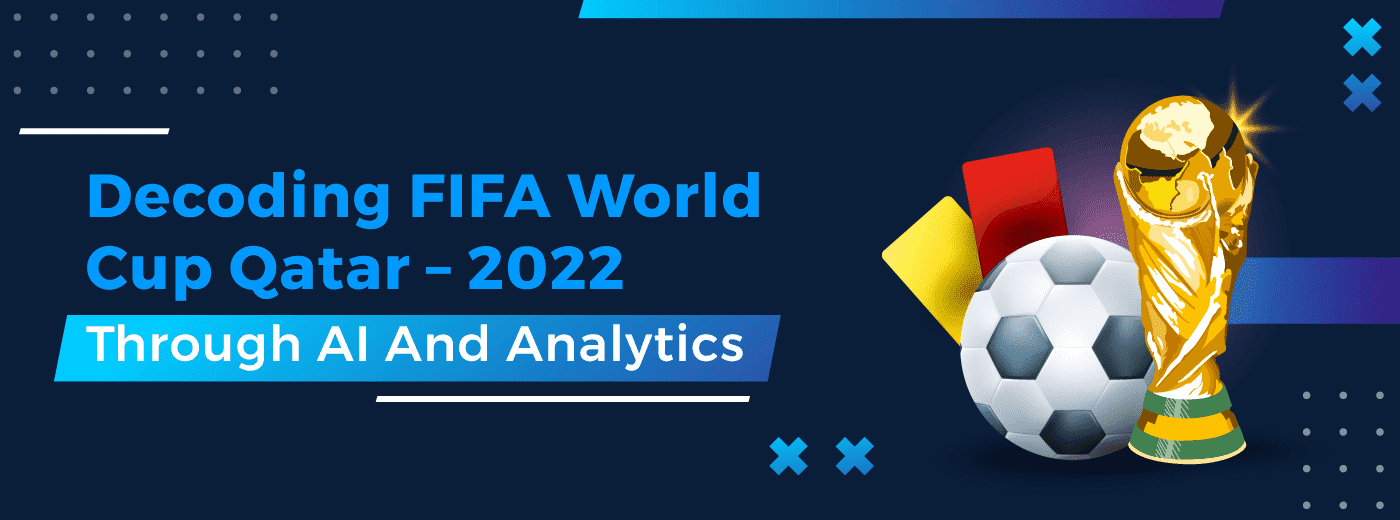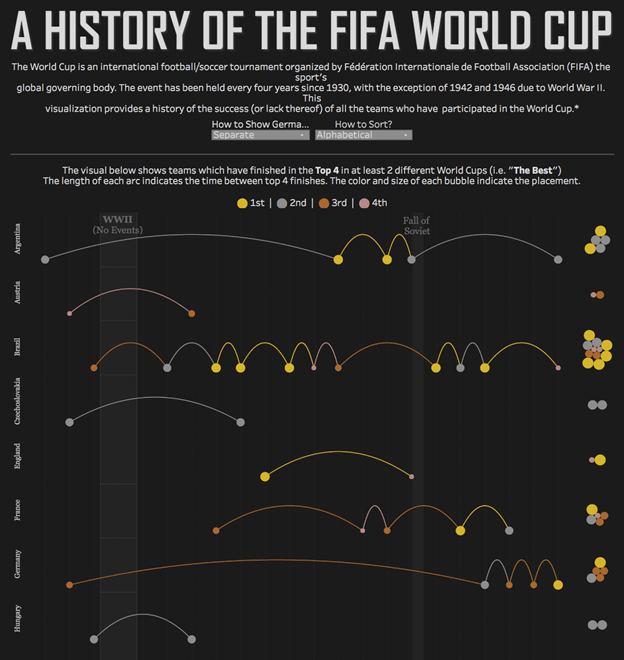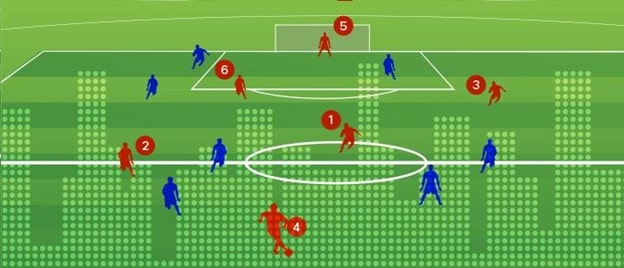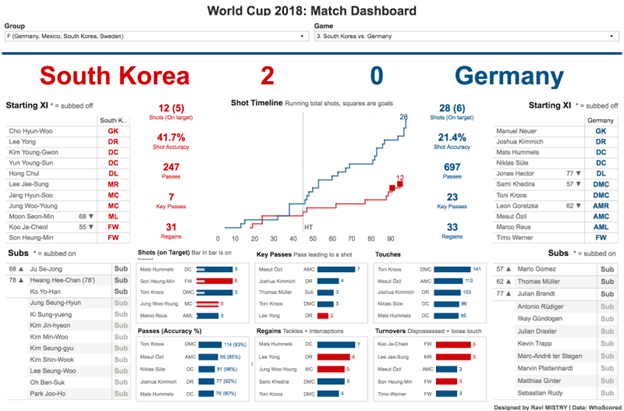
Sign up to receive latest insights & updates in technology, AI & data analytics, data science, & innovations from Polestar Analytics.
This Sunday, the 22nd quadrennial Men's FIFA World Cup will be held in Qatar. The event begins when the host country plays Ecuador and will conclude four weeks later. The Men's World Cup is the world's most famous sporting event; 95% of all sports fans globally are aware of the tournament. As with recent World Cups, billions of viewers will watch or stream across 200+ nations.

Some of the most famous soccer stars showcasing their goal-scoring skills include England's Harry Kane, Kylian Mbappe of France, and Brazil's Junior Neymar. In addition, the legendary 37-year-old Christiano Ronaldo of Portugal and 35-year-old Lionel Messi from Argentina will both be seeking their first World Cup title in what could be their last appearance in the event.

In the current scenario, sports clubs, media outlets, and fans worldwide, all share a thirst for information and advanced statistics. Big teams use this information to improve the performance of their players, prepare tactics against other teams, or scout potential players. On the other side, media outlets play with data just as much since it gives added value to their reports. Finally, the stats have also outsized importance for sports managers who create their teams with individual athletes in top form.
The evolution of cutting-edge technologies has replaced the legacy chalkboards with touchscreens, evolving the game of football over decades. With the advent of AI, new technologies such as Video Assistant referees (VAR) and limb tracking are bringing the sport closer to fans and teams alike. For instance, video analysis uses conditioning technology to understand players' strengths and weaknesses.
Through such technologies, team and club managers can make quick data-driven decisions. For instance, technologies can help coaches to do sorting and clip information from training and competitive matches, which assists them in managing squads, dealing with injuries, and help in making strategic decisions.
We help you leverage analytics and technology to analyze the growing volume, velocity, and variety of data for deep insights
Talk to our analytics consultantNew technologies introduced this world cup season, such as stadium cooling, AI-driven VAR offside technology, sensor-based navigation for traffic management, AI, and drone-based crowd management, etc., will drive an immersive and engaging experience for players and fans. Here are three ways technology will considerably impact the football game this world cup season.
Just as enterprises leverage analytics to process Big Data to make intelligent data-driven decisions, analytics technology leveraged in the game provides a large volume of data about player performance, gameplay, injuries, fitness, etc., equipping team managers and club owners to make accurate decisions in setting-up teams for each game.
With powerful AI and improvements in player-tracking technology, football data and metrics can be captured directly from live television broadcasts without other cameras in the venue.

Moreover, data is also helping managers become more intuitive in team management, with AI-driven insights helping managers assess team mental health and psychological blocks, assisting players in preparing for the world cup, building on the team's capabilities, and enhancing the team's ability to win. Even wearable technology can help analyze player speed, distance, workload, and the impact on overall team performance. Moreover, advancements in AI are also finding their way into the right balance for the teams with respect to opposition with the help of scenario modeling resulting in better team dynamics and performance.
The use of edge technology in football can process data in real time during a match. Game analysts are already making observations by capturing data using video to share passages of play with decision-makers.

The ability to process that data locally in real-time using edge servers will enable team managers and players to access intelligent gameplay insights delivered through interactive dashboards to help players and managers make essential decisions to emerge victorious. Besides the game itself, Edge will significantly improve the game viewer experiences for fans watching on-ground and worldwide this season.
With climate change impacting sports, prominent events are implementing strategies to have more positive and sustainable impact-driven outcomes. While the upcoming FIFA World Cup has a strategic sustainability approach across five pillars – human, environmental, social, economic, and governance, technology has a significant role in enabling sustainable experiences. Technological solutions such as Neptune Warm-Water Cooling are leveraged by enterprises to warm large computing infrastructures. Stadiums and teams can leverage warm-water cooling technologies to cool buildings, stadiums, and several other infrastructures, making football's overall sport more sustainable for the future.

In the present scenario, there’s a growing contribution of sport to peace, tolerance, education, and social inclusion objectives. Not to forget health too! We all remember when Cristiano Ronaldo removed a bottle of Coke during the European Championship, what a message it stirred up!
Soccer has always been a numbers game, driven by more and more Big Data. With over 3.5 billion fans across the globe eagerly waiting for the FIFA World Cup to kick off, teams and broadcasters are actively leveraging technology to bring the game closer to fans. Smarter technology and devices, from servers, data management, storage, monitors, and accessories, can help football teams gather and manage large amounts of data, transform operations and deliver better results on and off the grounds.
Such advanced analytics solutions will help clubs digitize historical archives to leverage traditional data into modern game passages. With adequate support from tech partners, football teams can improve performance and speed by 20% by assessing more than 100 million GPS data points collected during games, training sessions, etc. So, the computational power can potentially reduce the time taken for data processing by 25%, enabling faster time to insights.
The countdown begins; bring it on!About Author

Content Architect
The goal is to turn data into information, and information into insights.